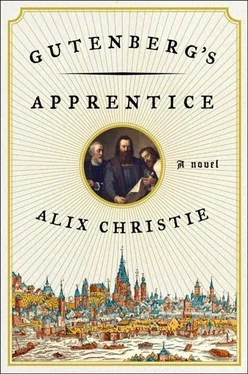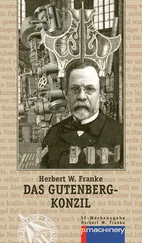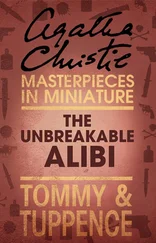“I just keep wondering,” the abbot says, “why he felt he had to make that letter in such secrecy.”
“He made a deal to save his neck.”
“Or else he had been backed into a corner.” Trithemius pulls at his chin. “Is it not possible he did it to keep Dietrich happy, and divert attention from the Book?”
“If that had been his thought, he could have told me.”
The abbot’s face fills with compassion. “He had a different code, most certainly, than you or I.”
“I only wish…” says Peter heavily, “that the workshop could have been preserved.”
“It lasted for as long as it could last,” the abbot says. He gives a rueful little shrug. “I’d say it was a miracle it even lasted for that long.”
“A miracle.” Peter closes his tired eyes. A miracle was what they made, not what they were. And yet. He opens them, surprised. “It lasted for the time required.”
He and Trithemius lock eyes. They held together for the time it took, perhaps, to wreak that miracle — the time that God designed.
“Perhaps, like an apprenticeship, the term was fixed.” The abbot smiles.
“My wander years,” the printer says. Emotion fills his chest. He looks away toward the bright fresh world outside. “He taught me what he knew,” he says, a feeling of tremendous love and sorrow rising through his body, leaving him at last. “And then he let me go.”
The abbot nods. Neither speaks for several moments. “You did not see him again?” he finally asks.
“Just once, the day we married.” Peter rolls the years back, conscious now that in the dross that he had buried there had been some glints of gold.
The surprise was not that Peter invited Gutenberg, but that the master came to join that wedding celebration. By then their common workshop was closed. The families and the craftsmen followed bride and groom in two long lines from Anna’s house to St. Quintin’s, with Johann Gutenberg, flamboyant in a new green suit, alone right at the back. Fust had ordered tables set out on the Brand, and they had finished feasting and the music had begun when Gutenberg wandered over to salute them. “Now, Peter,” he said thickly, for he’d had a few. “Frau Schoeffer, bless your house.” He grinned and said a wife that comely might have weakened his own vow. And then he pulled a package out and handed it to Peter. “This should by rights be yours.”
Carefully Peter opened it. “I don’t believe it,” he said to the master, who just laughed.
His gift was a new-bound edition of a book that never had existed — except in their extremity and need. Four sheets of printed canticles, bound with the songs of Moses and Isaiah written out in Peter’s own fine hand: that old, fictitious present for a pope.
“A unicat ,” the master said, “so don’t you lose it, now.”
Abbot Trithemius is smiling broadly. “Unique indeed. As was the man.”
“I wish I’d had the wit right then to really thank him.”
“You never did?”
“Not in so many words.” Peter Schoeffer stands and reaches toward the bookshelves. He picks a volume out at random and opens it to the last page.
“Everything I print, I seal with this device,” he says. “I think you’ll see the meaning.”
His printer’s signet is the knotted branch that he’d inherited from Fust, still bearing those two dangling shields. Except that he’d replaced the names with two Greek letters, chi and lambda, signifying Word of Christ. He’d placed three stars as well, to symbolize the Trinity — each book he prints thus harking back to that great Bible they had made together, and the Gospel according to John.
“In principio erat Verbum,” the abbot murmurs. In the beginning was the Word .
He moves swiftly to the lectern and dips his reed to capture one last note. Peter watches, but his mind has moved past that last meeting to a different day, the day that his apprenticeship had truly ended.
November, 1455: a bleak, cold morning. How long he waited, anxious and angry and filled with guilt, for the master to arrive. The witnesses for Gutenberg and Fust stood in a horseshoe in the great hall of the barefoot friars, across from their old workshop.
He did not come. Peter sees them all, suspended, waiting; still he did not come. He never did. His work was done. For an instant past and present merge inside his mind as Peter hears the scratching of the reed, inscribing all they’d done and been together in the hide.
CHAPTER 5: WEDNESDAY AFTER THE NATIVITY OF THE BLESSED VIRGIN
11 September 1454
THE WALK to Frankfurt’s quayside was not long. Peter left the brothers Fust behind him in the goldsmiths’ quarters, marching blindly into night. On the Römerberg rubbish piles were being burned. A bitter smoke rose heavenward, and Peter raised his cloak to shield his nose. His feet conveyed his body past the entry to the lane where they so briefly had rejoiced in their great triumph. The place was strewn with shavings from the casks that had been emptied. Through the small archway of St. Leonard’s Gate he saw the bobbing masts along the Main and quailed. He was not ready yet to face his fellows. He pushed the door and pulled aside the velvet drape and entered in the church instead.
The light was red from votive candles, and the stone walls blocked all sound. He genuflected and slipped into the front pew. Above him on all sides, stories from the Bible were written in the panes of glass. Before him to the right of the small altar stood a tall, carved Saint Sebastian, stung by arrows, slumped against his bonds. The pain that Peter felt was not like this. It was more a tearing at his heart, tied for so long to those two horses stepping steadily apart.
His eyes fell on the parish Bible chained to the oak pulpit. The book was fat; the hasp to which the chain was fixed was bright from years of rubbing. It would be anchored here until the iron rusted or the leather split. Had there been chains a thousand years before, when Benedict had heeded God’s command to take His word and write it down? Peter didn’t think so. He thought then of the finished copies of their Bible setting out on their own journeys. St. Jakob’s would receive one, old man Widder too; he’d seen the copy painted by the Austrian that Fust had taken to his mansion on the Brand. The trader planned to offer it to the Franciscans. Peter had fancied he might hear those barefoot friars reciting from that Book someday, their voices drifting out across the Cobblers’ Lane into the Humbrechthof. That would not happen now; the workshop was destroyed. He bowed his head and prayed.
He pictured them, the hundred eighty copies of their Bible, stowed in casks attached to boats — to convoys, caravans — spreading far beyond the Rhineland. It seemed to him they moved out ponderously, yet with great purpose, into the world. Like oliphants, he thought: great hidebound beasts out of the East, spreading across the land, bearing their thick and transcendental cargo.
Aboard the drinking vessel there were casks as well, bolted fore and aft, from which the Rhine wines flowed. He found the members of their workshop gathered at a table, Keffer with his bushy beard and Götz and Ruppel, then his dear friend Mentelin. “Ahoy!” cried Keffer, “here’s our fearless leader!” They raised a toast to him. “We did it, bloody hell!” Even the closemouthed Ruppel grinned. Mentelin sloshed wine into his cup. “To Hans and Konrad,” Peter said, and raised it. “And all of you. Yours were the hands that mixed and carved and cast and made it happen.” They drummed their feet and bellowed. The hands that held those cups were blunt and hard and for a time held heaven in them, too. Like Anna’s with her brush, his own clamped on his awl or quill. He wished then for his love and home. The roaring on the boat grew raucous, and beneath the cover of their songs he bent his head to Mentelin’s. “My father ended it,” he whispered. “It’s over — workshop, psalter, all of it.” The gold-scribe put his hand on Peter’s shoulder. “I guess it ran its course,” he said, and squeezed it. “Gutenberg would try the Lord’s own patience.”
Читать дальше












